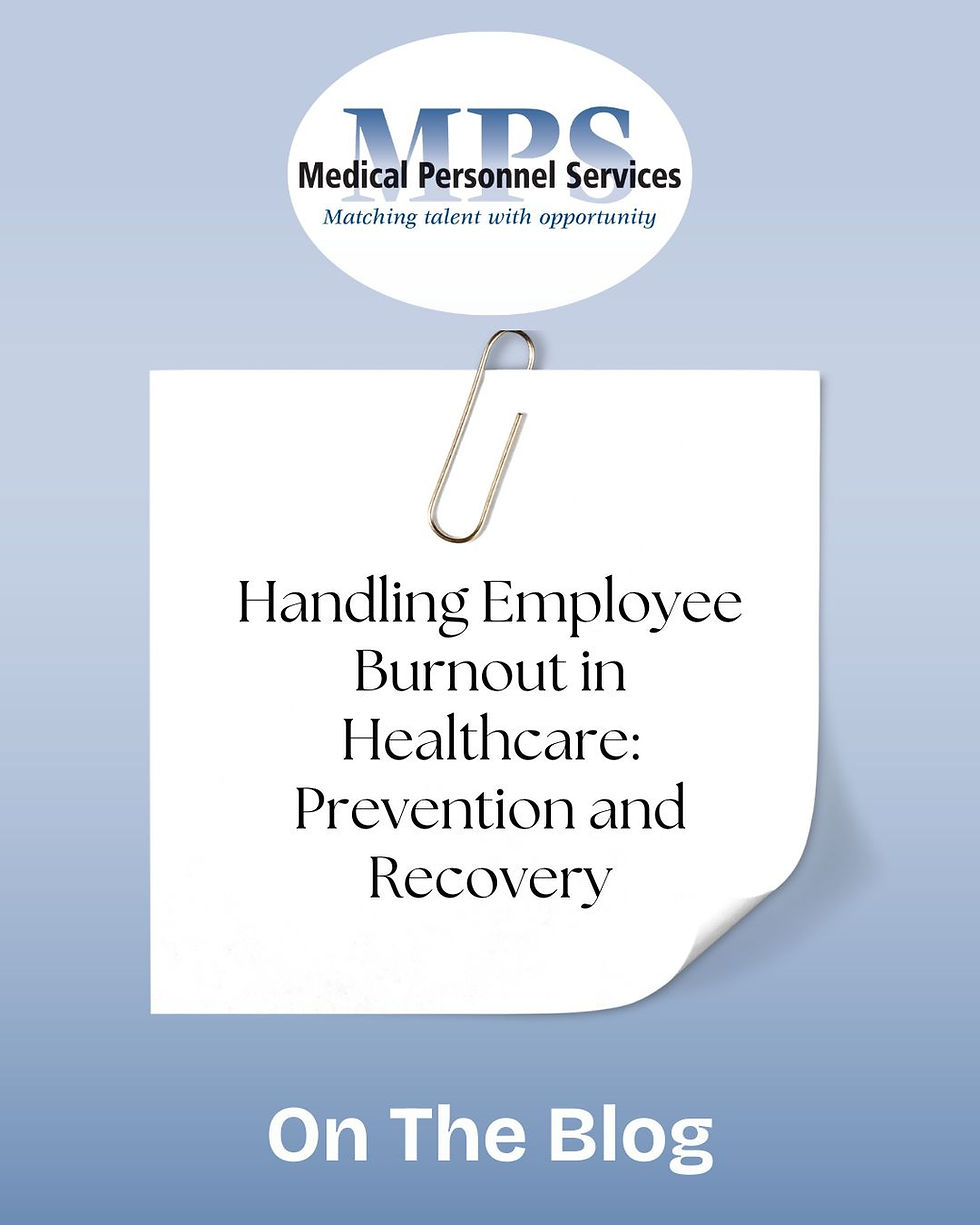How Do I Prevent Meal Break Violations?
- kevin84036
- Sep 17
- 3 min read

Healthcare practices face intense pressure to provide continuous patient care while maintaining employment law compliance with complex labor regulations. Among the most overlooked healthcare compliance areas are meal break violations, which can result in significant penalties and employee relations problems.
Understanding Meal Break Requirements in Healthcare
Meal break regulations create a complex compliance management landscape for healthcare employers. While federal law under the Fair Labor Standards Act doesn’t mandate meal breaks, it does allow breaks lasting 30 minutes or longer to be unpaid, provided employees are completely relieved of their duties during that time.
State laws significantly complicate this picture, as many jurisdictions impose specific meal break requirements that healthcare employers must comply with. California requires a 30-minute meal break for shifts exceeding five hours, while New York mandates meal periods for shifts over six hours. These state-specific requirements often include premium pay penalties when breaks are missed or interrupted.
Healthcare’s round-the-clock operations create unique challenges that don’t exist in traditional business environments. Patient emergencies don’t respect scheduled employee break times, and maintaining adequate staffing levels while ensuring break coverage requires careful planning and resource allocation.
The nature of healthcare work also blurs the line between being “on duty” and “off duty.” A nurse eating lunch while monitoring patient alarms isn’t truly relieved of duties, even if they’re in a break room. This gray area creates significant liability for practices that don’t establish clear protocols for true duty-free meal periods.
What Constitutes a Meal Break Violation?
Healthcare practices frequently create meal break violations through well-intentioned but legally problematic practices. The most common violations include:
Requiring on-call availability during breaks – Employees who must respond to pages, calls, or emergencies aren’t truly relieved of duties
Automatic meal deductions without verification – Deducting meal break time from pay without confirming the break was actually taken uninterrupted
Inadequate staffing for break coverage – Failing to schedule sufficient staff to cover patient care responsibilities during meal periods
Pressuring employees to skip breaks – Creating workplace cultures where taking required breaks is discouraged or seen as abandoning patients
Interrupting breaks for non-emergencies – Calling employees back from meal breaks for routine tasks that could wait or be handled by other staff
Insufficient break facilities – Providing break areas that don’t allow employees to truly disconnect from work responsibilities
These scenarios become particularly problematic when they occur repeatedly or systematically, suggesting a pattern of non-compliance rather than isolated incidents.
Documentation and timing issues
Healthcare practices often struggle with the administrative aspects of meal break compliance. Automatic payroll deductions for meal periods create significant liability when employees don’t actually receive uninterrupted breaks. Many time clock systems automatically deduct 30 minutes for shifts exceeding a certain length, regardless of whether the employee took a break.
Poor documentation practices compound these problems. When meal breaks are interrupted or missed entirely, practices must maintain accurate records and provide appropriate compensation. Failing to track these incidents creates audit vulnerabilities and makes it challenging to identify patterns that require operational changes.
The High Cost of Meal Break Violations
Meal break violations carry substantial financial consequences that extend far beyond simple wage adjustments. State labor departments are increasingly focusing on healthcare employers due to the industry’s history of meal break compliance issues, with investigations often resulting in significant penalties.
Class action lawsuits tied to labor law violations represent the most devastating financial risk. Healthcare employees who discover systematic meal break violations often pursue collective actions covering all affected workers. Recent settlements in healthcare have exceeded $1 million for practices that failed to provide required meal breaks or properly compensate for missed breaks.
Best Practices to Prevent Meal Break Violations
Preventing meal break violations requires a systematic approach that addresses both policy development and operational implementation. Healthcare practices must establish frameworks that balance the protection of employee rights with the quality of patient care.
Effective meal break policies should explicitly define what constitutes a duty-free break and establish clear procedures for handling emergencies during break periods.
Adequate staffing represents the foundation of meal break compliance. Practices must schedule sufficient staff to maintain patient care standards while allowing employees to take uninterrupted breaks. This often requires hiring additional staff or adjusting patient scheduling to accommodate break coverage needs.




Comments